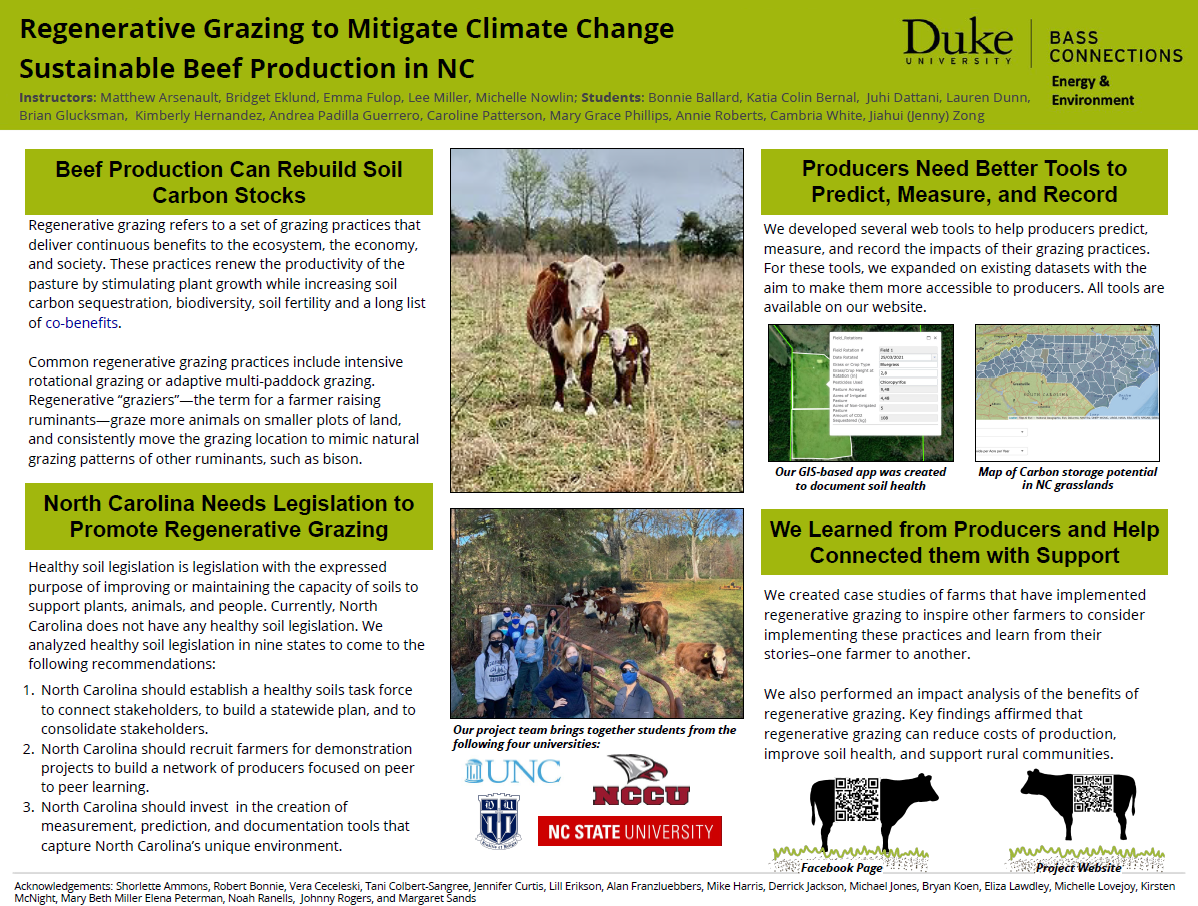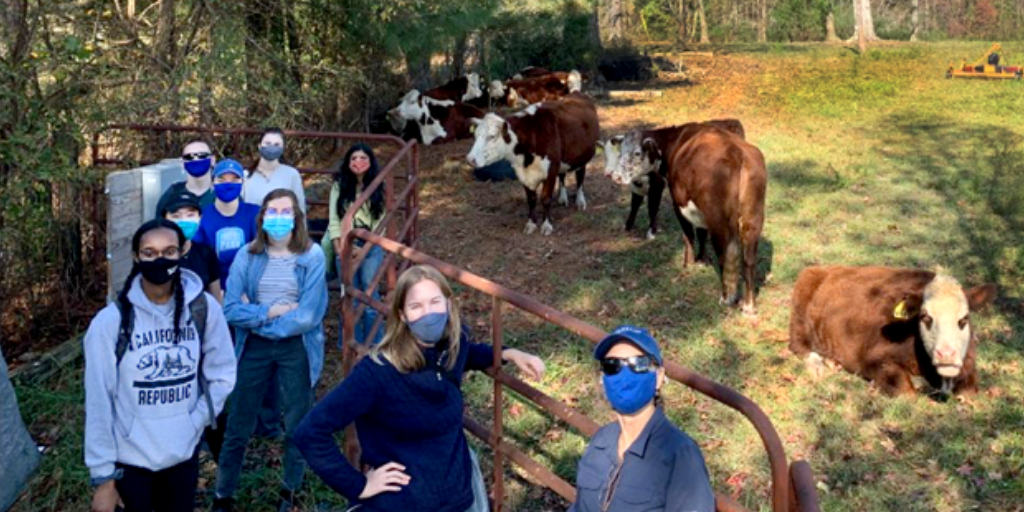

Team profile by members of the Regenerative Grazing to Mitigate Climate Change project team
Beef production is one of the largest contributors to climate change. In our project, we wanted to communicate: “it’s not the cow, it’s the how.” When regenerative practices such as rotational or managed grazing are used, beef production can provide net-negative emissions and several other economic, environmental, and social co-benefits. The goal of our team was to promote regenerative grazing in the state of North Carolina.
Our team consisted of twelve students and five instructors from the four major Triangle research universities (Duke, NC Central, NC State, UNC). In the fall, we heard from speakers and read articles to get all students on the same page, which was very useful because we come from different academic backgrounds such as law, economics, and environmental science. Key takeaways were the importance of centering equity in our work and focusing on the needs of others. The highlight of our Fall semester was a trip to the Williamson Preserve in eastern Raleigh, where we have been monitoring the changes due to regenerative grazing over the past two years.
In the Spring semester, we split up into three groups: soils, impact analysis, and education, outreach, and documentation. The main focus of the soils group was to develop policy recommendations for the state of North Carolina. The soils group read the healthy soils policies of nine states to come up with three recommendations.
- North Carolina should establish a healthy soils task force to connect stakeholders, to build a statewide plan, and to consolidate stakeholders.
- North Carolina should recruit farmers for demonstration projects to build a network of producers focused on peer-to-peer learning.
- North Carolina should invest in the creation of measurement, prediction, and documentation tools that capture North Carolina’s unique environment.
The full report can be read on the policy section of the website.
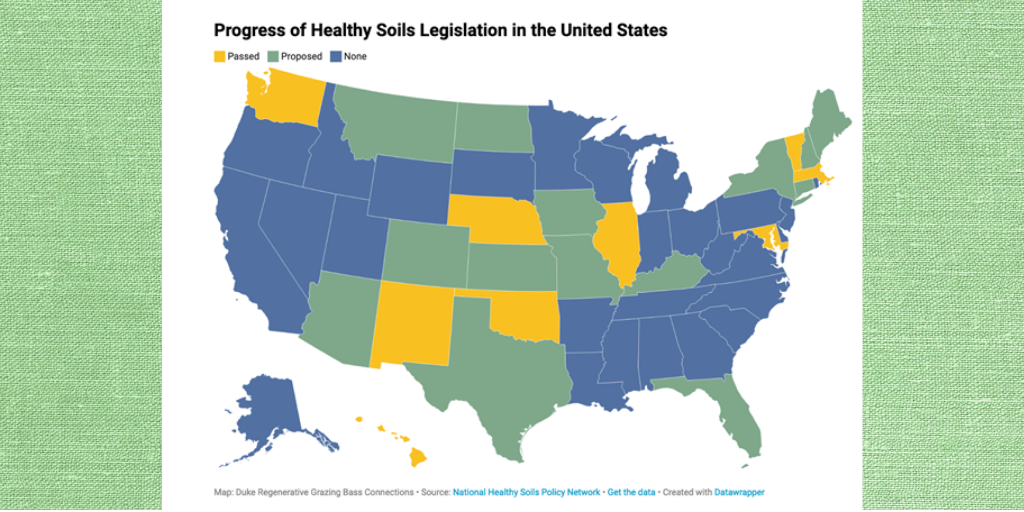
The soils group also developed tools to help producers and policy-makers understand the potential of grazing in North Carolina. One tool is for policy-makers interested in where subsidies for regenerative grazing would go. The other tool is for producers to predict the impact of practicing rotational grazing. Data come from a variety of USDA sources, most notably COMET-Farm, which is designed to measure the climate impacts of a variety of conservation practices.
The education and outreach team also worked on web app development. They made an ArcGIS-based tool for farmers/producers to easily document regenerative grazing practices. Any data that is recorded is automatically updated in real-time across all platforms. And if an individual is out in the field without internet access, the data will be updated as soon as a connection is found. A walkthrough of the tool can be found here.
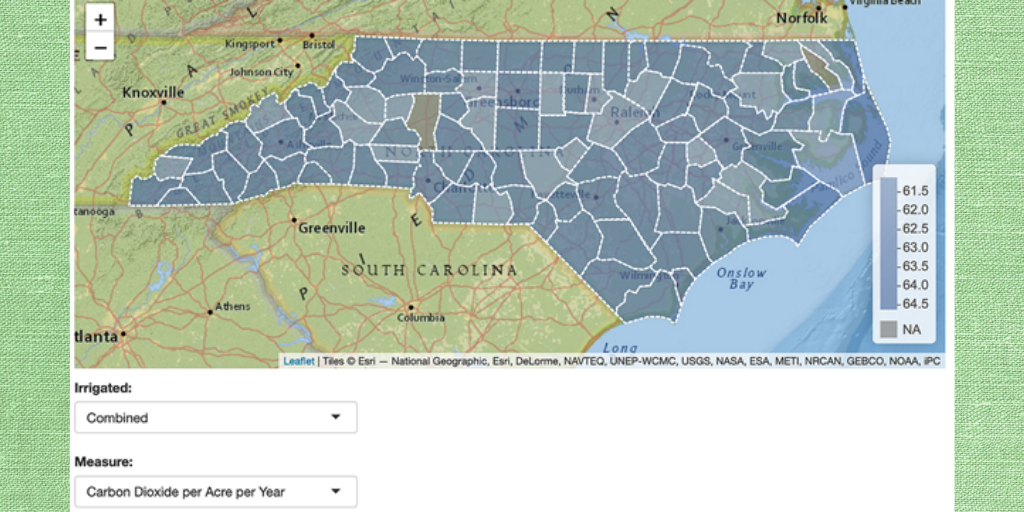
The education and outreach team also maintained a monthly newsletter to inform producers about regenerative grazing and to keep people up to date on the work of our team. They also held a webinar “Grazing for the Future,” a discussion on regenerative grazing and its impacts on climate change with three people in the regenerative grazing business.
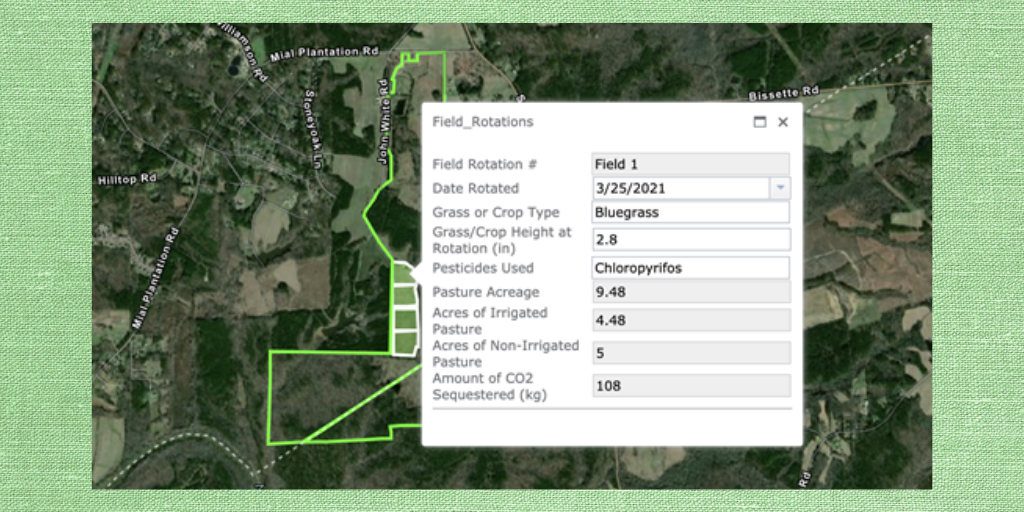
Lastly, the education team devised a guide to key terms. Since regenerative grazing has so much jargon associated with it, this guide is a must-have for anyone looking into the field for the first time. The impact analysis team conducted several interviews with producers practicing regenerative grazing. They let these interviews inform their accounts of the benefits of regenerative grazing along with some of the barriers that producers might face. Along with the infographic of benefits seen at the top of the page, the main product of this group was a collection of case studies, which they are looking to publish. As a whole, these case studies tell a story of how deliberately managed grazing has the power to be regenerative to the land, to producers, and to rural communities.
Regenerative Grazing to Mitigate Climate Change: Sustainable Beef Production in NC
Team poster by Matthew Arsenault, Bridget Eklund, Emma Fulop, Lee Miller, Michelle Nowlin, Bonnie Ballard, Katia Colin Bernal, Juhi Dattani, Lauren Dunn, Brian Glucksman, Kimberly Hernandez, Andrea Padilla Guerrero, Carline Patterson, Mary Grace Phillips, Annie Roberts, Cambria White and Jiahui (Jenny) Zong
